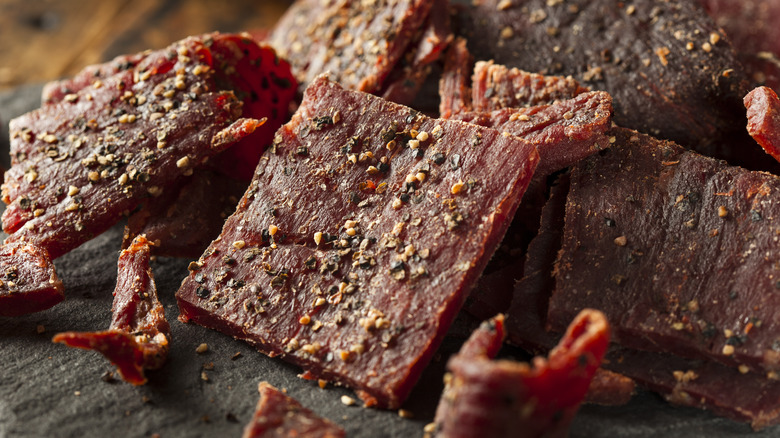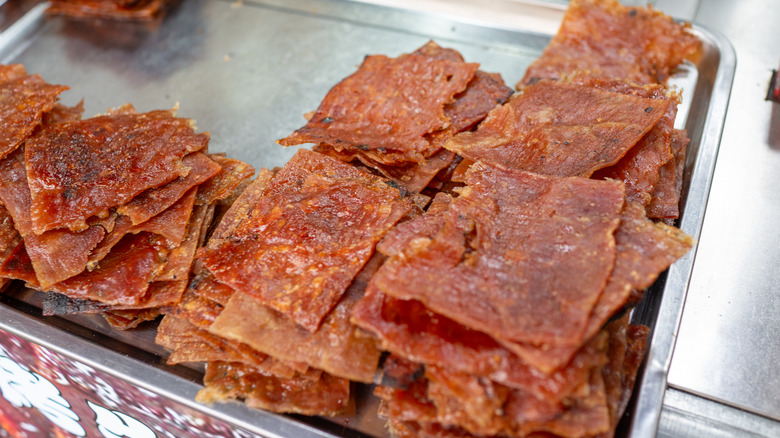Homemade Jerky Without A Dehydrator? Yes, It's Totally Doable
We may receive a commission on purchases made from links.
If you're prepping for the End Times or just have an excessive number of tomato plants in your garden, a food dehydrator may be right for you. If you're short on counter and cupboard space and are only considering this appliance to make the occasional batch of beef jerky, though, there's really no need. According to Jon Urbana, proprietor of online wagyu beef vendor Kow Steaks, it's fine to use your oven as a substitute meat dryer.
"When making beef jerky in a conventional oven, arrange the sliced, marinated meat directly on an oven rack so air can circulate freely around each piece," Urbana told The Takeout. "This helps it dry evenly." In order to dry but not bake it, you'll need to set the oven to a low temperature. Urbana suggests 180 degrees Fahrenheit and recommends a five-hour cooking time. "Check it occasionally to make sure it stays slightly pliable and doesn't over-dry," he said.
Once your oven-dried jerky is done, store it in an airtight container for maximum freshness. You might also want to refrigerate it, since it would be a shame if it got moldy and had to be thrown out. Even though it's cheaper than store-bought, homemade jerky is still pretty expensive to make since you're starting with an already pricey ingredient (steak) and then shrinking it.
Oven jerky doesn't have to be beef
What with Urbana being in the beef business, it's natural that his thoughts on the subject of jerky should turn to beef. If you've shopped in the snack aisle of any reasonably well-stocked grocery store, however, you'll know that beef isn't the only jerky variety available. Turkey jerky is a popular alternative, not just because it rhymes, but because it has slightly less fat and more protein than beef jerky. It's also just as simple to make in the oven. Tenderloin is the best cut for making jerky. It can easily be cut into strips and cooked using the same method Urbana recommends for beef. If the strips are on the thin side (⅛ inch or so), they can be made in as little as three hours.
Pork jerky is slightly less common than either beef or turkey, but commercial varieties are available. Like the other two meats mentioned, pork jerky can be easily dried in the oven. As with turkey jerky, pork tenderloin is going to be the best cut to use. Pork, unlike turkey, tends to be fatty, but pork tenderloin offers a large chunk of relatively lean meat. Slice, season, and dry the pork strips just as you would beef ones. If you're worried about consuming undercooked pork, there's an additional step you can take: Bake it at 325 degrees for 20 minutes. This shouldn't affect the texture of the final product, but will provide a little extra insurance that any foodborne bacteria have been killed off.

